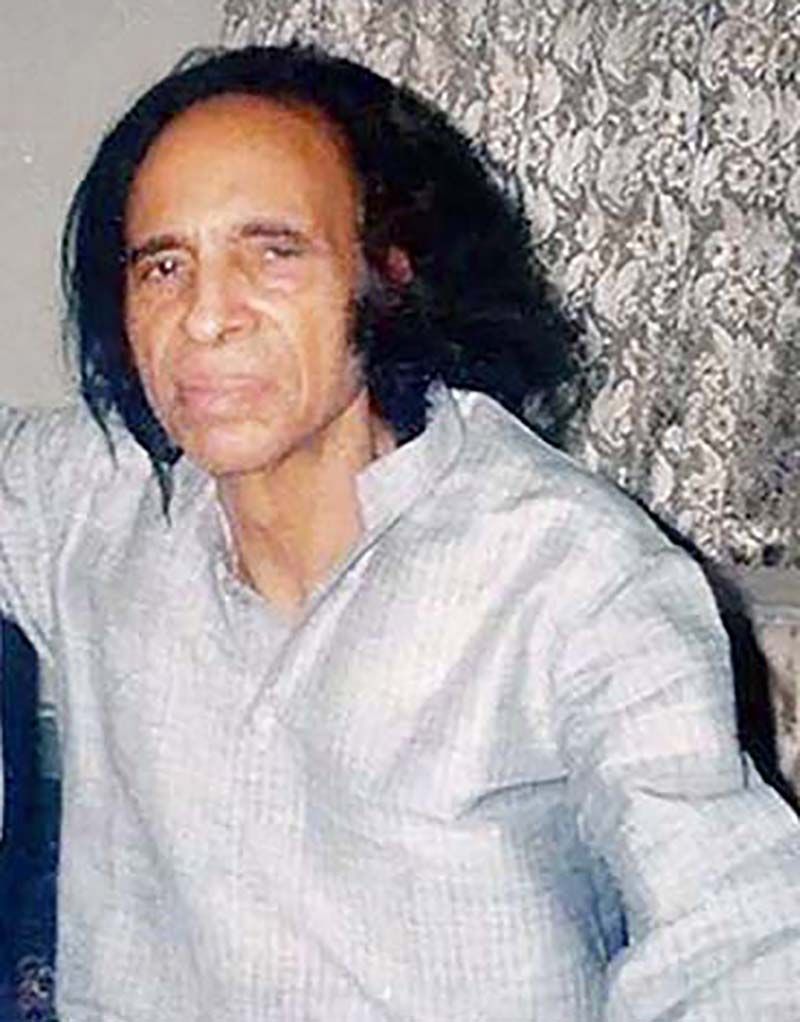Jaun Elia was a Pakistani Urdu poet, philosopher, biographer, and scholar. He is one of the prominent modern Urdu poets of Pakistan. He is also one of the most googled Pakistani poets.
Contents
Wiki/Biography
Jaun Elia was born as ‘Syed Sibt-e-Asghar Naqvi’ on Monday, 14 December 1931 (age 70 years; at the time of death) in Amroha, British India (now in Uttar Pradesh, India). His zodiac sign in Saggitarius. He studied Persian and Arabic from Darul Uloom Syed Ul Madaris in Amroha, a madrasa associated with Darul Uloom Deoband, an Islamic university in Uttar Pradesh.

Jaun Elia with his Mentor and Close Friend
Despite his resistance to leave, in 1957, he had to migrate to Pakistan, where he settled in Karachi.
Physical Appearance
Eye Colour: Black
Hair Colour: Black
Family & Caste
He belonged to the Shia community of Muslims. However, he is not a believer of sect or religion, instead, he identified himself as an agnostic.
Parents & Siblings
His father, Allama Shafique Hassan Elia was a scholar of literature and astronomy and had a good diction in Arabic, Persian, Hebrew, and Sanskrit languages. He was the youngest of his siblings; his brothers, Rais Amrohvi and Syed Muhammad Taqi were journalist and psychoanalysts. He also had a brother named Mohammad Abbas, and a sister named Sayyada Shahezanan Najafi Naqvi.

Jaun Elia with his Parents and Sister

Jaun Elia’s Brother, Rais and his Sister
Wife & Children
He got married to Zahida Hina, a renowned story writer and columnist in 1970, and they both got divorced in 1992.

Jaun Elia with his Wife and Child
He has three children, Zeryoun Elia, Fainaana Farnaam, and Sohaina Elia.

Jaun Elia’s Daughter, Sohaina Elia
Career
He began writing poems at the age of 8. In 1958, he was writing for ‘Insha,’ a magazine which was edited by his brother Rais; he used to write editorials for the magazine. He later worked for ‘Suspense’ Digest. His first collection of poems “Shayad” was published in 1991, when he was 60 years old.

Shayad (1991)
The second collection of his poem ‘Ya’ani’ was published posthumously in 2003. Later, his companion Khalid Ansari published his collection of poems, ‘Guman’ in 2004, ‘Lekin’ in 2006, and ‘Goya’ in 2008. His popular works included-
- Tumharey Aur Mere Darmiyan
- Jaun Elia Ki Tamam Ghazlain (parts I-III)
- Farnood (Essay and Editorials by Jaun Elia)
He was also an editor with Ismaili Tariqah and Religious Education Board in Karachi, Sindh, Pakistan. He has translated various Mautazalite treatises, a book on 12th century Fatimid revolutionary Hassan Bin Sabbah, and various text of Ismaili sect in Islam in Urdu language and literature. He has not only translated books but has also introduced new words in Urdu. His translations and proses can be found at Ismaili Tariqah Board libraries in Karachi. Some of his translation works are-
Signature

Jaun Elia Signature
Death
At the age of 70, he died of tuberculosis in Karachi on Friday, 8 November 2002. His body lay at Sakhi Hasan Graveyard. His Namaz-i-Janaza was offered at Masjid Khairul Amal in Ancholi after Zuhr prayers. His grave reads-
Main bhi bahut ajeeb hun, itna ajeeb hun ki bas
Khud ko tabah kar liya aur malaal bhi nahin”
[Translation: I’m very strange, so strange that
I ravaged myself and have no regrets]

Grave of Jaun Elia
Favourite Things
- Food: Hari Mirch Keema, Samosa
Facts/Trivia
- His father was correspondent with scholars and scientists including Bertrand Russell at the Royal Observatory in Greenwich, England.
- His cousin, Kamal Amrohi (born Syed Amir Haider) is a veteran Indian filmmaker. His film includes Mahal (1949), Pakeezah (1972), and Razia Sultan (1983).
- In his life, he obtained the knowledge of philosophy, logic, Islamic history, the Muslim Sufi tradition, Muslim religious sciences, Western literature, and Kabbala. Jaun was well-versed in English, Persian, Hebrew, Sanskrit, Arabic, and Urdu.
- His views on religion can be explained with his conversation with poet and close friend, Mir Zafar Hassan,
My dear Mir Zafar Hasan, you’re one lucky person. You are an exceptionally good poet and at the same time you’re extremely fortunate. You are Mir, but you can be Zafar, and you can also be Hassan whenever you feel the need for it. You can be a Sunni, and you can turn into a Shia if you so desire. But I, Jaun Elia, despite being an agnostic, will always be a Syed. Isn’t it sad?”
- He was friends with the modern Pakistani poets such as Mir Zafar Hassan and Obaidullah Aleem.

Jaun Elia with Obaidullah Aleem
- Talking about his political views, he identified himself as a Marxist, nihilist, and anarchist.
- For his literary work, he has received Presidential Pride of Performance Award.
- His poetry often expresses pain and sorrow and love from a different angle. He is known as the poet of pain and sorrow. It is believed that his sadness comes from his separation from ‘Fariya Nigarina,’ a girl in Amroha whom he loved. He has also made a poem on the girl. However, many believe that the word ‘Fariya’ implies ‘happy’ in the poem. Some believe his unending pain, is from separation from his village ‘Amroha’ and separation from his wife.
- He was also a heavy drinker and smoker.
See more: Anjali Tendulkar Wiki
Anjali Arora Wiki
Categories: Biography
Source: vcmp.edu.vn

